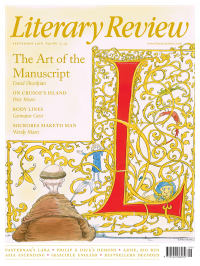Joanna Kavenna
Dino Buzzati & ‘The Tartar Steppe’
‘I was working at Corriere della Sera in those days. It often occurred to me that that routine would never end and so would eat up my whole life quite pointlessly.’ This cheerful sentiment comes from Dino Buzzati, the Italian novelist and journalist. In the Sibillini Mountains of Italy, I have been rereading Buzzati’s Il deserto dei Tartari (‘The Desert of the Tartars’, translated into English as The Tartar Steppe). Written in 1938, this prescient and disturbing novel relays the trials of Giovanni Drogo, a young soldier who is posted to a remote mountain outpost, Fort Bastiani, where he must watch for the Tartars to invade. Each day, Drogo waits, scouring the barren landscape for a glimpse of his enemy. ‘To right and left the mountains stretched out as far as the eye could see in precipitous and apparently inaccessible ranges … from the invisible north a thick cloud was rising over the glacis and imperturbably the sentries walked up and down under the high sun.’ Time passes. Each day Drogo paces the ramparts and, each day, nothing happens. After several decades, Drogo becomes ill and is dismissed from the fort. He dies alone, in a little inn, on the eve of the long-awaited invasion. This might sound like the most depressing novel in literary history. Yet, as with Kafka or Beckett, Buzzati derives bleak comedy from uncertainty, suffering and even death.
In the Northern Sibillini, clouds obscure the highest peaks, evening shadows seep across the lowlands. These mountains are named after an allegedly once-resident sibyl, prophetic denizen of a magical kingdom that could only be reached through a cave. There is also a story that Pontius Pilate, after being sentenced

Sign Up to our newsletter
Receive free articles, highlights from the archive, news, details of prizes, and much more.@Lit_Review
Follow Literary Review on Twitter
Twitter Feed
Alfred, Lord Tennyson is practically a byword for old-fashioned Victorian grandeur, rarely pictured without a cravat and a serious beard.
Seamus Perry tries to picture him as a younger man.
Seamus Perry - Before the Beard
Seamus Perry: Before the Beard - The Boundless Deep: Young Tennyson, Science, and the Crisis of Belief by Richard Holmes
literaryreview.co.uk
Novelist Muriel Spark had a tongue that could produce both sugar and poison. It’s no surprise, then, that her letters make for a brilliant read.
@claire_harman considers some of the most entertaining.
Claire Harman - Fighting Words
Claire Harman: Fighting Words - The Letters of Muriel Spark, Volume 1: 1944-1963 by Dan Gunn
literaryreview.co.uk
Of all the articles I’ve published in recent years, this is *by far* my favourite.
✍️ On childhood, memory, and the sea - for @Lit_Review :
https://literaryreview.co.uk/flotsam-and-jetsam